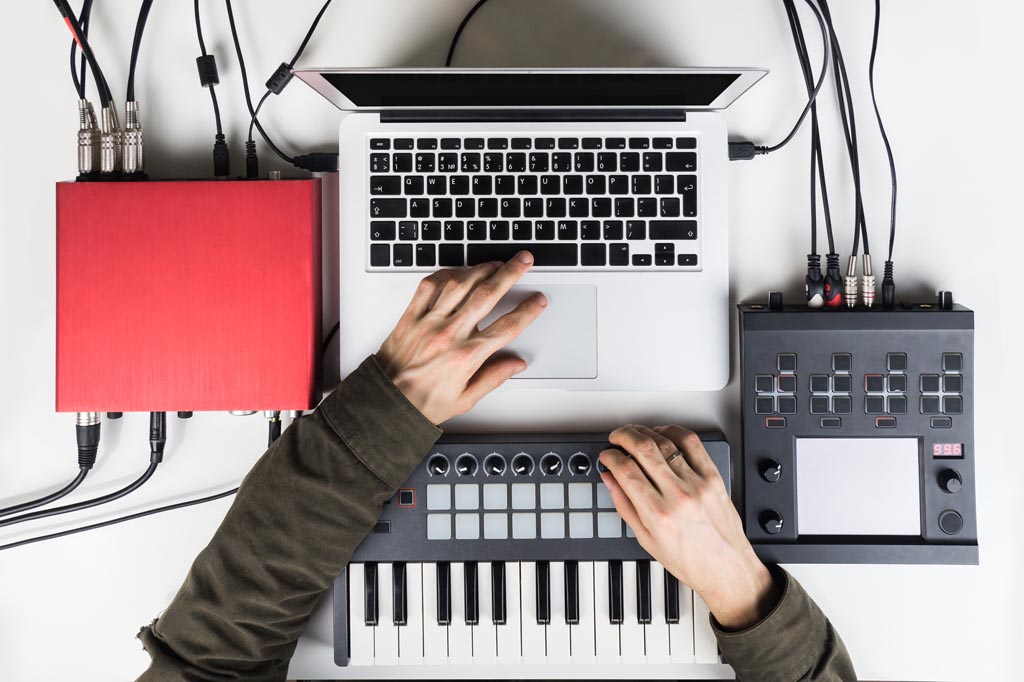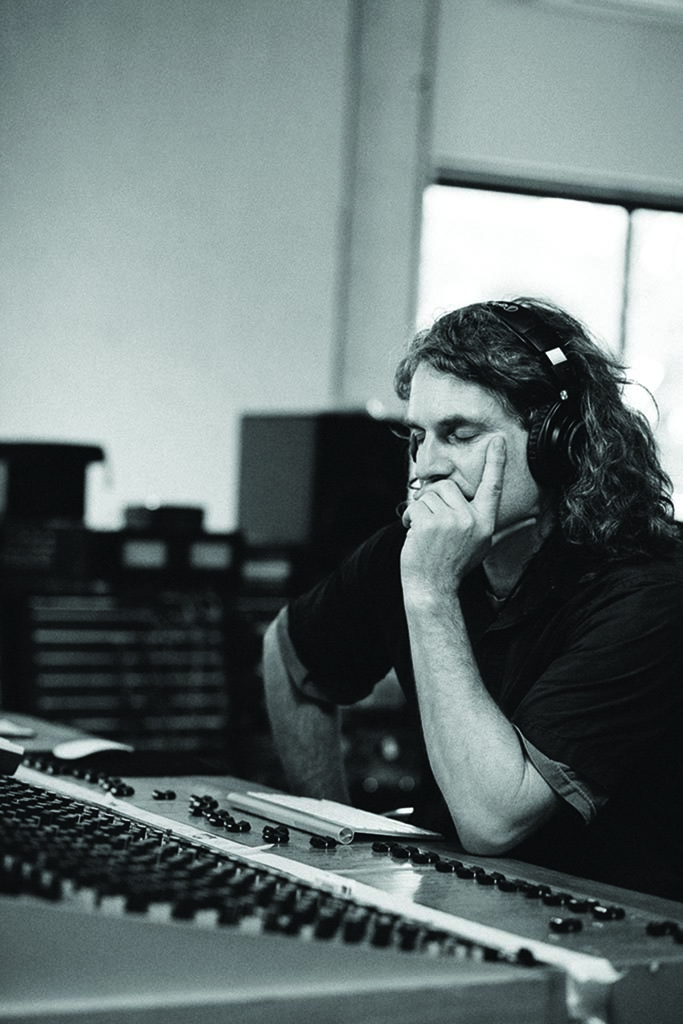LISTEN HERE
24 Oct 2023
Multitrack-Tasking for Producers

Subscribe to CX E-News
PART 1
When you’re the producer of an album, you need to retain the widest perspective possible on the project you’re steering. This ‘width’ of vision naturally infers a certain objectivity, but more importantly than that, it involves the capacity to ask yourself certain questions about the project that no-one else around you has time to contemplate, let alone answer
In some respects, the clichéd notion of the producer sitting cross-legged in the corner of the studio, with his or her eyes shut, contemplating the latest recorded performance of your new song, has a kernel of truth to it. They’re the person in the room with some objectivity; an external influence with a taste filter you can trust and respect, and no axe to grind. At a stretch they’re the Zen master with an intuition for what’s right, or cool, or hip. They’re the person a band might defer to when things are confusing or heated, and sometimes they’re the person who got this rag-tag group of musicians together in the first place.
Whichever way you frame the role, in the end a producer has an ambiguous list of sometimes ill-defined tasks to perform during an album’s production, and no two albums will ever elicit the same demands – meaning that every time you, or someone else, takes on the producer’s role, it’s different.
With that in mind, and in no particular order of importance, here in Part 1 of this two-part exploration of what constitutes a producer, are a collection of thoughts to contemplate if your name’s about to be associated with the word ‘Producer’ on an album for the first, or indeed the hundredth, time in your career.
And if, like me, you’re going to use the term in public – more fool you – get used to answering this question repeatedly: “What the hell is a producer, anyway?”
Will I, Won’t I?
If producing great music was easy, everyone would be doing it; the operative word here being ‘great’.
But no-one can define what makes something objectively ‘great’, so right out of the gate we’ve hit a hurdle and already we’re in the weeds trying to define a producer’s role.
So let’s not. I don’t want to waste half this article trying to define terms. You’re the producer, right? It’s up to you how you define great, not the Oxford Dictionary.
One of the first, and most important, tasks you as a producer must face when making a new album, is deciding whether to get involved in the first place. By quickly establishing a frame of reference around what this new album might consist of, how the picture might include you, and how you might make it subjectively great, you can start to form an opinion about whether to proceed with your involvement.
Though musically the project might still be totally open-ended and undefined, which can make the decision seem impossible to weigh up, there will be other aspects of the project that are relatively easy to measure, and building up a list of these known quantities helps you make your decision based more on facts, rather than guesswork. If you always leave the decision up to your impression of the music alone, you’ll nearly always feel unsure of your decision.
Known facts might include: whether it’s a band recording; whether the project involves a singer/songwriter with a few songs and no plan; and whether the act is famous or ambitious. Other questions might include: are those involved capable of travelling down the long and winding production road with you; can they afford you financially; do they have people in the background who might undermine your role; and of course, do they have music that compels you to want to produce them?
You’ll have some parameters of your own too, of course; some of them already listed above. For instance, you might not like recording bands, or you might be physically unable to.
You might be unaffordable to the artist or you might simply draw a line in the sand at a singer who can’t hold a note. Whatever your parameters are, stick with them, otherwise you’ll wind up spending months wondering how you ever put yourself in this unworkable position.

The Songs
If there are songs to hear, now’s the time to wrap your ears around them. You’re producing music after all, and in the end it’s the music that ultimately counts. You might ask for some demos, or the artist might pop over to your place and simply play them to you on their preferred instrument.
This first impression, whether it’s with a singer playing the songs right in front of you (which I prefer) or via demos, is a crucial step to making the biggest decision you’ll make around the entire project – of whether to be involved, or not.
Simply put, particularly when the artist is present in the flesh, more can be gleaned in this moment than at any point down the track. If you’re honest with yourself here about the songs, your impressions of the artist as a performer, and how you might be able to bring out the best of both, the decision will likely be a simple, often stark, one.
You might think to yourself, ‘Wow, this person’s voice is a knock-out! They could sing into a paper bag and sound good.” Add to this, that they have great songs, some skills with an instrument and a dash of humility and you may be onto something here.
Conversely, the artist may clearly not have that ‘certain something’ you’re looking for (one of your parameters perhaps). They may be terrible sounding, pitchy, unskilled with their instrument and yet still have tickets on themselves! Not a great combination of traits.
And while all this may not be something you couldn’t ultimately overcome utilising your various skills as a producer, would all that effort you’d need to inject into the project be worthwhile in the end? It may double the costs of the album, or worse, leave you out of pocket, and ultimately at the end of the project the artist will essentially be the same performer they were at the outset. When they play live to promote the album six months from now, they will likely leave the same lacklustre first impression upon new listeners that they once did on you. Unfortunately, most of the production values you add to a record stay with the record. They don’t ‘travel’ with the artist.
Time to make the hard decision.
Pre-Production Scale
But let’s say you’ve made the decision to work with a certain artist using your instinct and by remaining true to your parameters. You’ve laid out some terms and been clear about costs in writing (even if it’s only a per-day, or per-week price, never how much it will ultimately be – how could you possibly know that at this point?), and now the project has been given the green light. What’s the next step?
Basically, now is the time to set your own parameters around the scale of the project. This is the point at which you start to establish your vision for the album and likewise calibrate your macroscopic view of how you see things ultimately playing out. It’s this early, wider perspective that you’ll be relying on to some degree or other for the length of the project, particularly when everyone around you gets lost in the detail or starts developing tunnel-vision. This is where you establish yourself as the ‘Zen master’ by building a basic foundational concept for the album that you can fall back on later when things get complicated, confusing, or buried under a mountain of detail.
You don’t need to establish the finer concepts at this point; it can be as little as a bunch of adjectives at the start. You might at least be able to imagine that the album is ‘intimate’ and ‘quiet’, or ‘tough’, ‘solid’ and ‘uncomplicated’ in its rock sensibility. You might want to try to imagine the scale of the project in respect of track counts, the size of the soundstage, and the basic palette of instrumentation too. But if this all sounds too tricky or unknowable at this early stage, it sometimes pays to think of the project in reverse: by at least imagining, for now, what it is not.
For example, perhaps you know right here and now with great certainty that you don’t want a 100-piece orchestra involved, because that would make things sound too grandiose and enormous. Or you might feel certain that you don’t want bombastic Guns N’ Roses-style drums and lead guitar, because it’s not a ‘big hair’ album. You might feel certain that you don’t want the album to get too ‘other-worldly’ or ‘ambient’ because it needs to stay ‘solid’ and ‘dry’, and you definitely DON’T want it to have a complex array of effects swirling around in the final master.
So at least now we’re starting to get a clearer picture on what you don’t want the album to be. That’s a start.
From here, the next thing we want to establish – in general terms at least – is who else you’d like to be involved, and for that matter who else the artist already has in mind, because the human component is fundamentally what a good album is all about. Choosing which musicians will play on the album has a massive bearing on the sonic outcome… but that’s a conversation for next issue.
’Til then.

Andy Stewart owns and operates The Mill in the hills of South Gippsland. He’s happy to respond to any pleas for production, recording, mixing or mastering help… contact him at: andy@themill.net.au
Subscribe
Published monthly since 1991, our famous AV industry magazine is free for download or pay for print. Subscribers also receive CX News, our free weekly email with the latest industry news and jobs.




